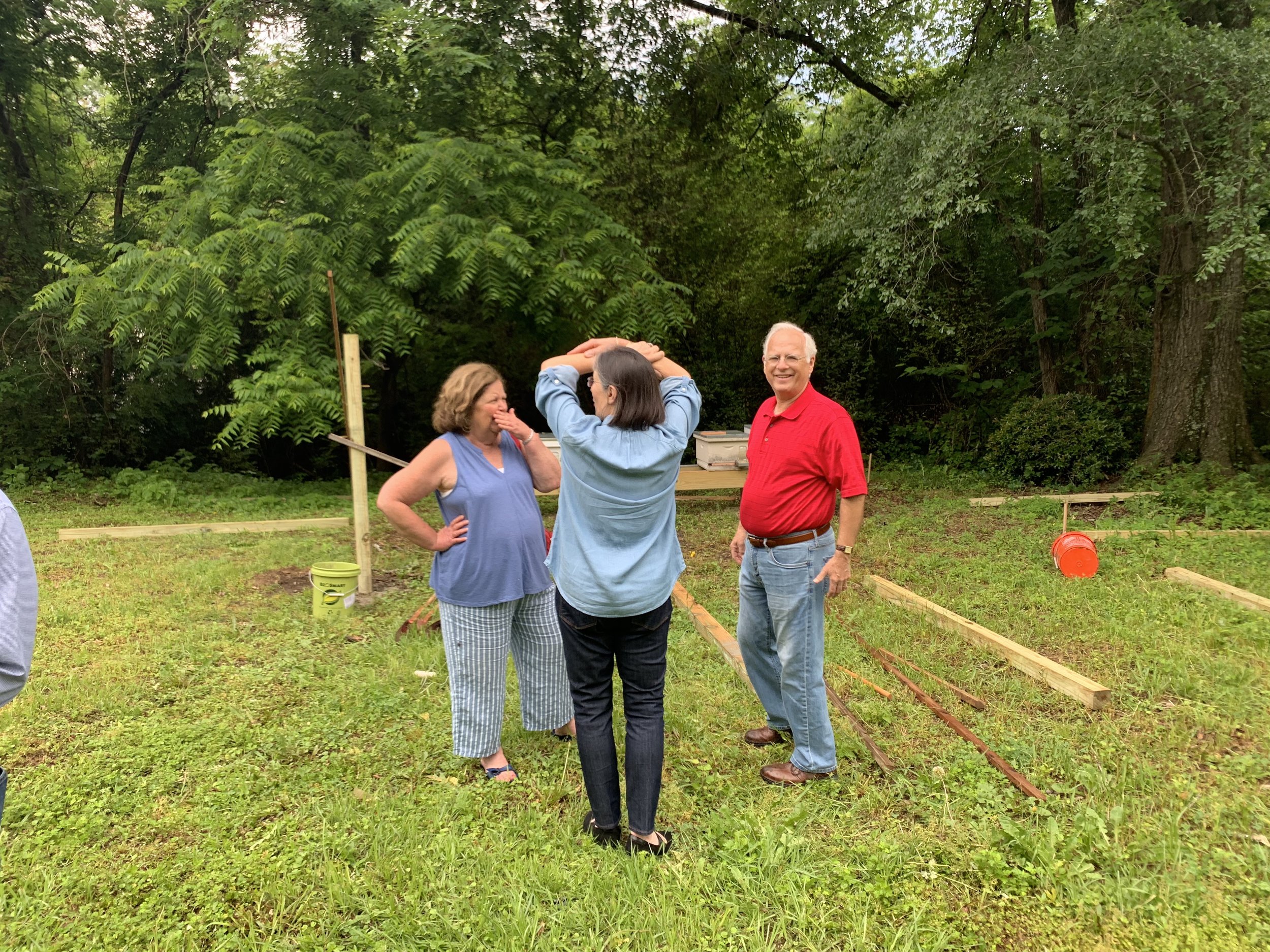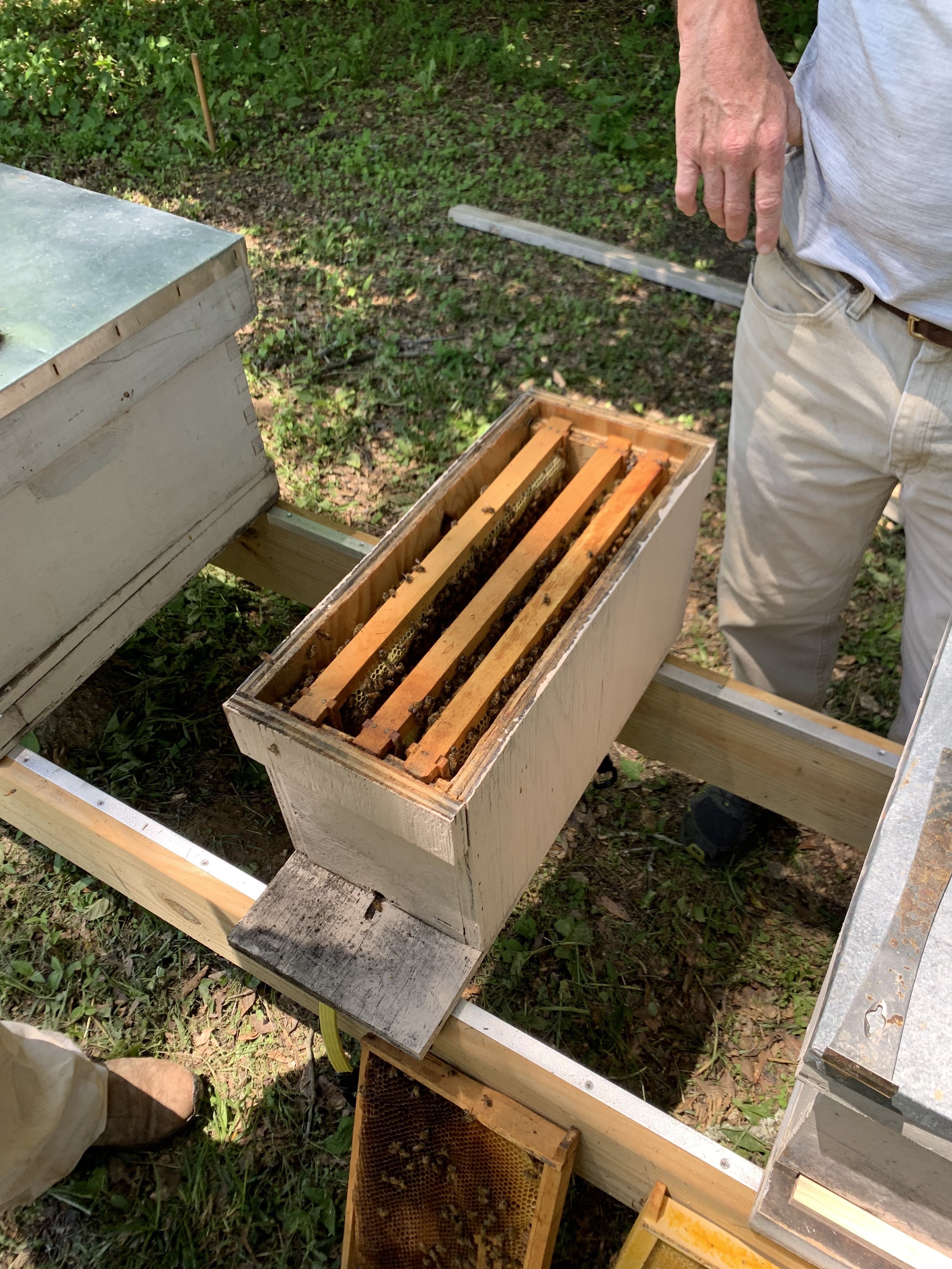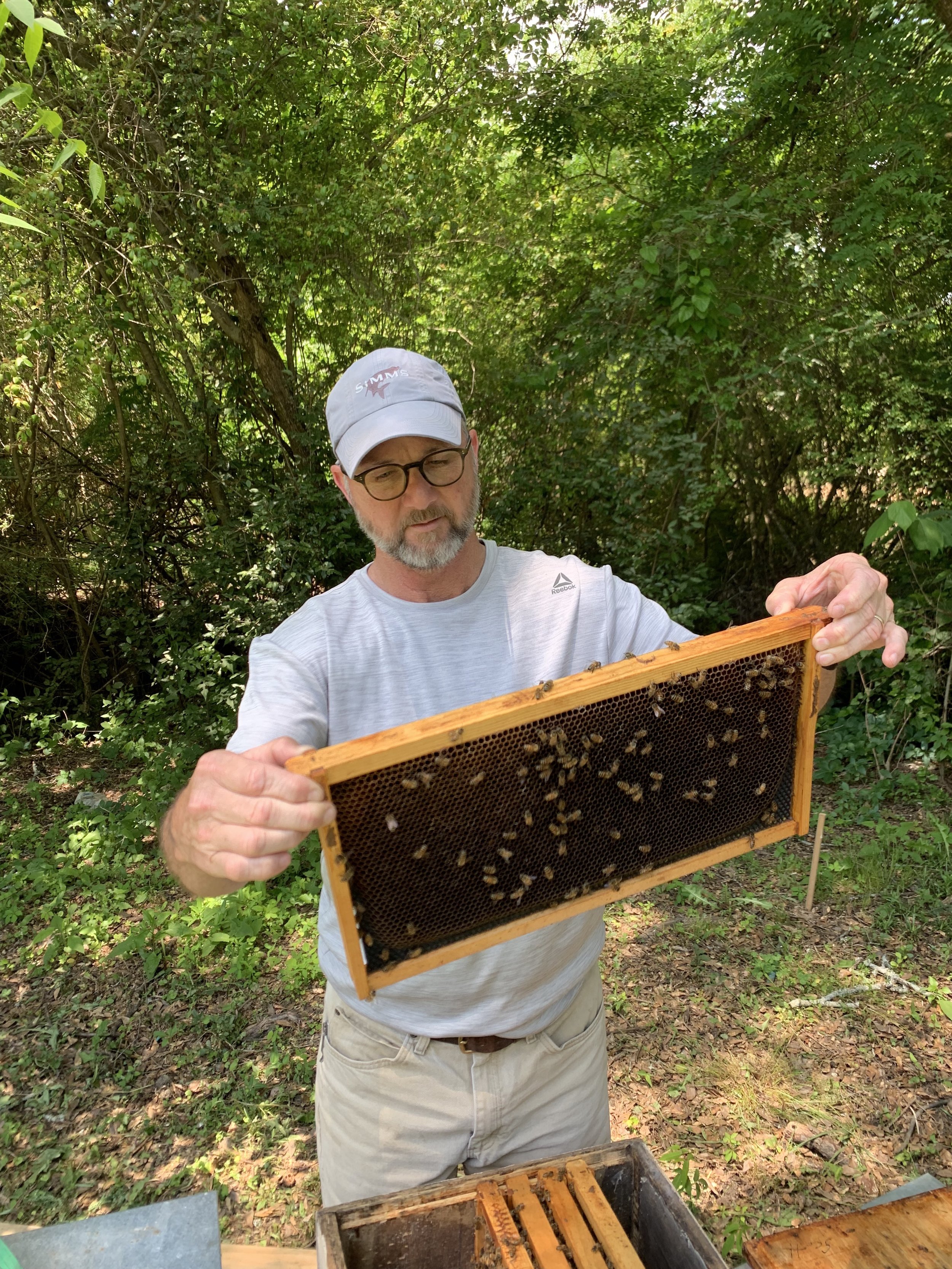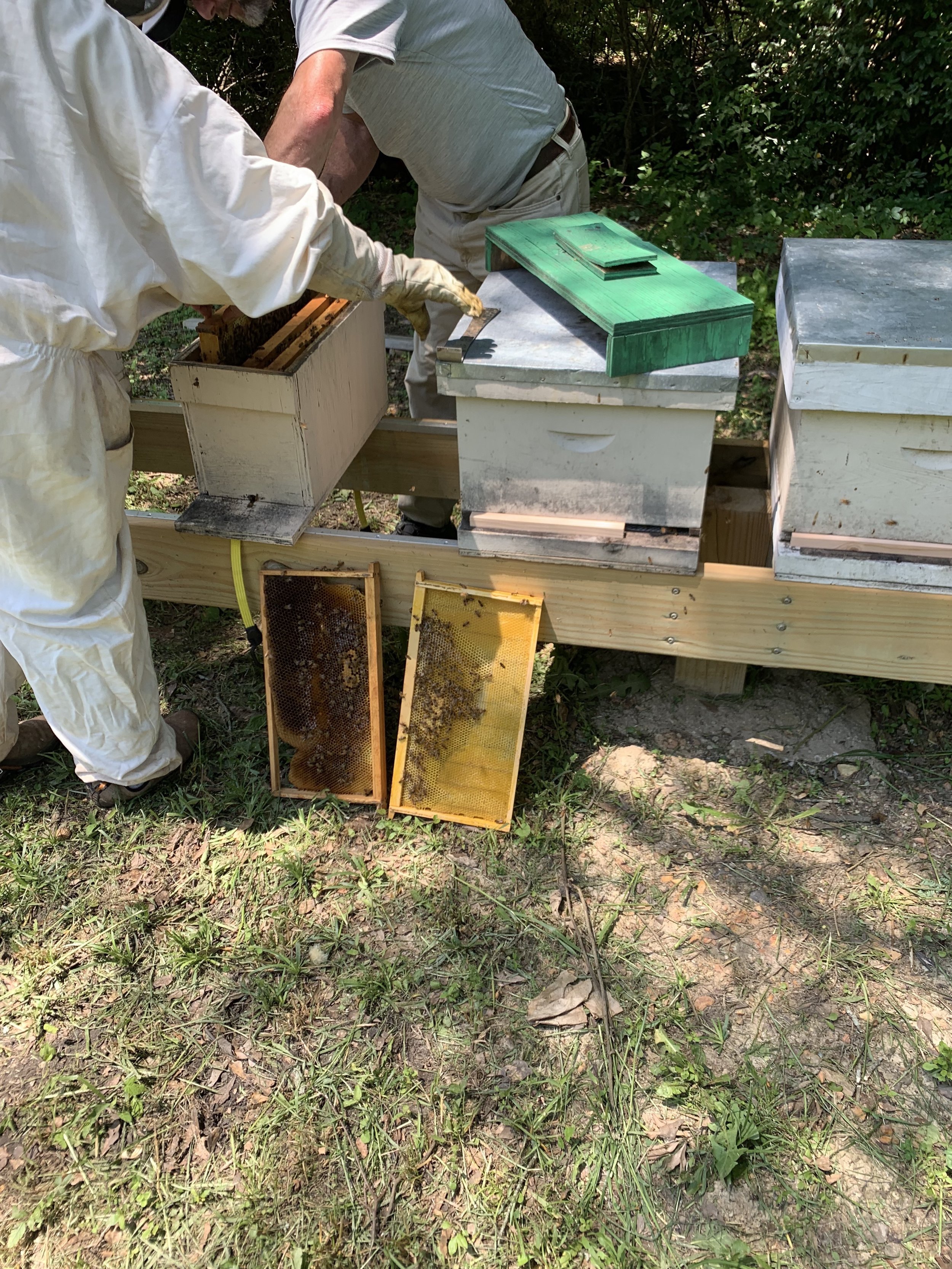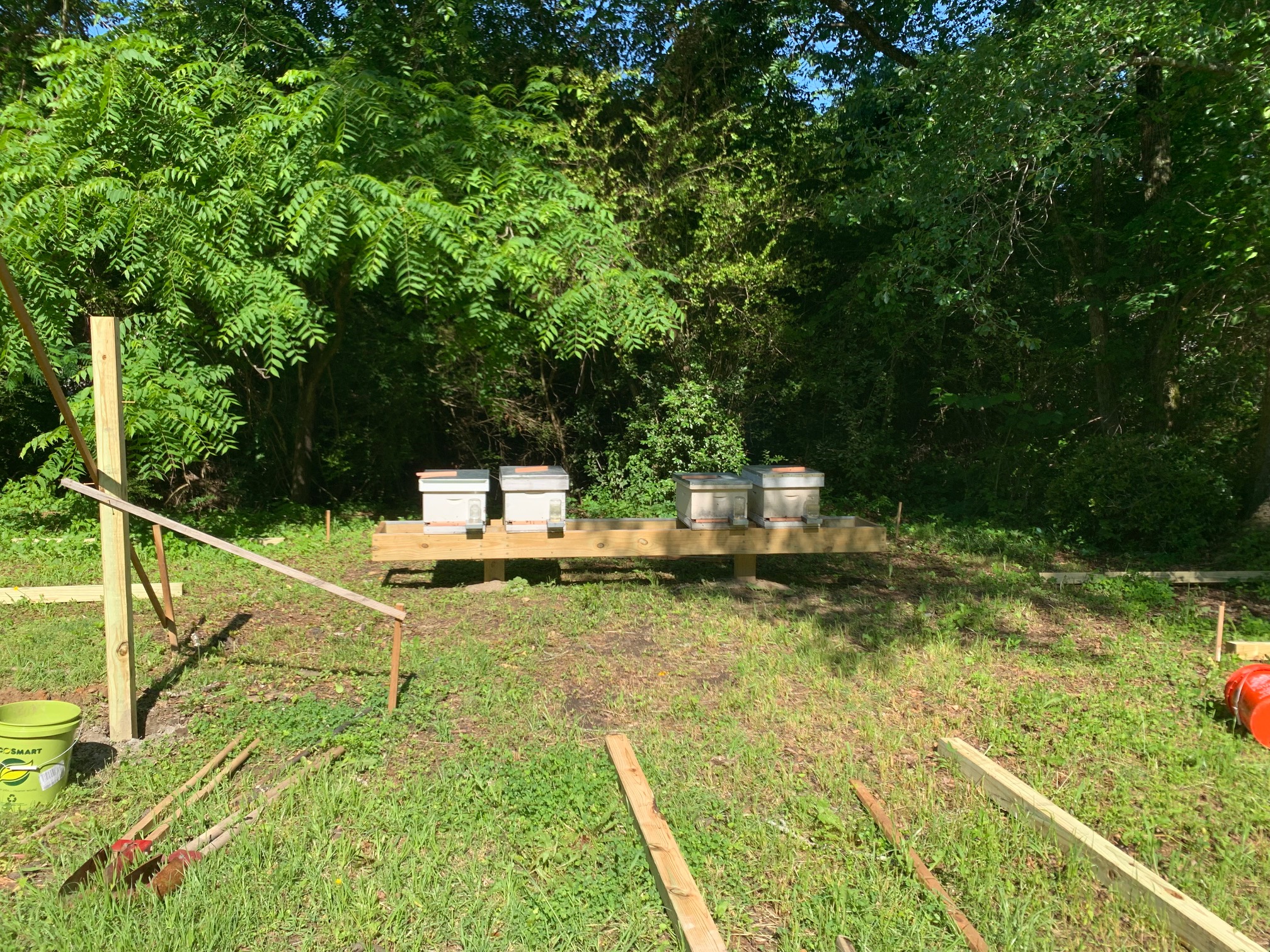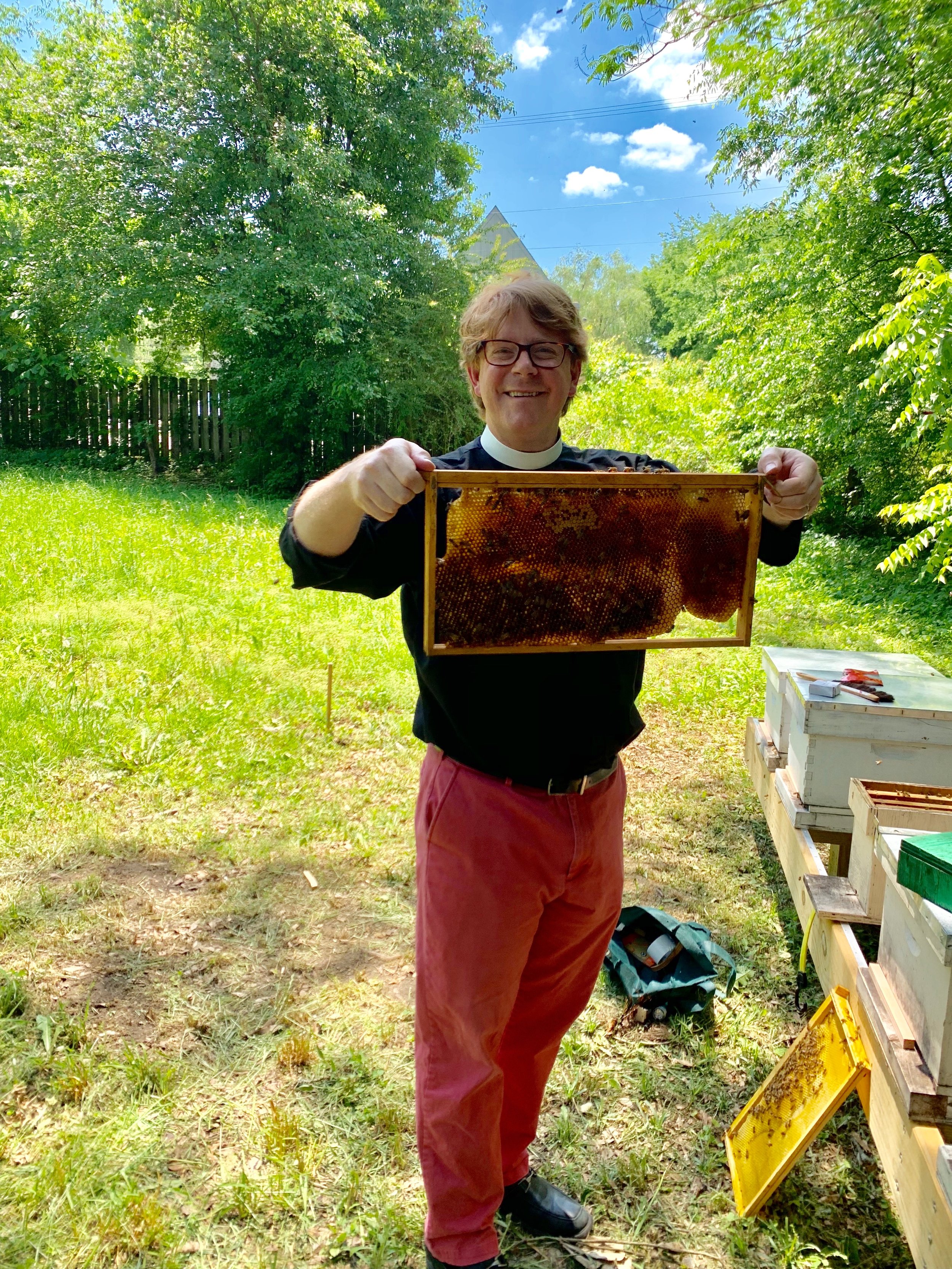Something is Buzzing at Saint Stephen's
In Genesis 2:15, God places man in the Garden of Eden and makes demands for the care of the land. You might have noticed that Saint Stephen’s has been engaged in earnest conversations about the stewardship of the land surrounding our treehouse sanctuary. A part of our conversation revolved around ways we can care for the little plot of land once owned by Billy Hodges, who tirelessly cared for our church building and grounds when he was sexton. One idea still percolating is to make space for a small church cutting garden on "Billy's Land" to make the connection between our property and the flowers used on Sunday morning. While that idea is still a work in progress, several month ago the vestry approved our hiring a few (or thousands depending on how you count) of God's little farmers to start working the land. That's right, we've brought honeybees to Saint Stephen’s!
Following in the footsteps of other churches (big and small) around the world, a group of volunteers have been working to establish four honeybee hives at the back of Billy's Land. An application was made to the Vestavia Hills Zoning Commission for permission to place beehives on Billy's Land, and the City Council passed a resolution in favor of the project on April 22 of all days. With lots of help from our resident beekeepers Scott Cochran, Tom Robertshaw, Kexaan Wang, and Sam Haskell, the beehives are now in place. On May 19, during the “Burn the Note: Imagine the Future” update over the formation hour, children will be invited to paint the honeybee "supers" (the large boxes which hold the frames on which the bees build their honeycombs). Then on June 16, we will gather on Billy's land for a blessing of the bees kicking off what happens to be National Pollinator Week.
Many of the foods we eat and flowers that decorate our altar are dependent on the daily work of the honeybee. In North America alone, honeybees pollinate nearly 95 kinds of fruits, including almonds, apples, avocados, blueberries, cranberries, cherries, kiwi fruit, macadamia nuts, asparagus, broccoli, carrots, cauliflower, celery, cucumbers, onions, legume seeds, pumpkins, squash, and sunflowers. Unfortunately, for a host of reasons that are not completely understood, honeybee populations have been suffering from declining populations throughout the world. By making space for honeybees at Saint Stephen’s, we will have created a sanctuary for several thousands of God's creatures to continue doing the important work of pollinating our food and flowers. In return, the bees will perhaps provide not only a little honey to share with the congregation but also provide a tangible lesson about the incredible interconnection between ourselves and Creation. Like the rest of God's Creation, the buzzing of Saint Stephen's newest members might also invoke that sense of wonder and connection to God that comes from our interaction with the natural world. For perhaps one of most beloved beekeepers said it best: "That buzzing noise means something. You don't get a buzzing noise like that, just buzzing and buzzing, without its meaning something." - Winnie-the-Pooh.
Submitted by Chris Williams

